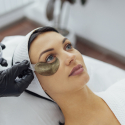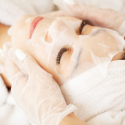The Impact of Sleep on Skin Health: What You Need to Know
 Sleep is a fundamental aspect of overall well-being, but its influence on skin health is often underestimated. Quality sleep plays a crucial role in maintaining vibrant, healthy skin. This article explores how sleep affects your skin, the benefits of a good night’s rest, and tips for improving your sleep to enhance skin health.
Sleep is a fundamental aspect of overall well-being, but its influence on skin health is often underestimated. Quality sleep plays a crucial role in maintaining vibrant, healthy skin. This article explores how sleep affects your skin, the benefits of a good night’s rest, and tips for improving your sleep to enhance skin health.1. The Science Behind Sleep and Skin Restoration
How Sleep Affects Skin Repair
During deep sleep stages, the body engages in intensive repair and regeneration processes. This period is critical for the restoration of skin cells, as growth hormones are released to facilitate tissue repair and collagen production. Proper rest ensures that these reparative processes are carried out effectively, resulting in healthier, more resilient skin.
The Role of Circadian Rhythms
The body’s circadian rhythms, which regulate sleep-wake cycles, also influence skin functions. These rhythms impact the skin’s ability to repair itself and maintain hydration levels. Disruptions to these natural rhythms, such as irregular sleep patterns, can impair the skin’s repair mechanisms and overall health.
2. Benefits of Adequate Sleep for Your Skin
Enhanced Skin Repair and Regeneration
Adequate sleep boosts the skin’s natural repair processes, helping to heal blemishes, reduce the appearance of fine lines, and enhance overall texture. During sleep, the body focuses on repairing cellular damage and restoring skin elasticity, leading to a fresher, more youthful appearance.
Improved Skin Hydration and Elasticity
A full night of quality sleep supports the skin’s ability to retain moisture. This leads to better hydration levels and improved skin elasticity. Proper hydration contributes to a plumper, more supple skin texture, reducing the visibility of wrinkles and promoting a healthy glow.
Reduced Appearance of Dark Circles and Puffiness
Sleep deprivation often results in visible signs of fatigue, such as dark circles and puffiness around the eyes. Sufficient rest helps mitigate these issues by improving blood circulation and reducing fluid retention in the under-eye area, leading to a more refreshed and well-rested appearance.
3. The Effects of Sleep Deprivation on Skin Health
Accelerated Aging and Fine Lines
Lack of sleep accelerates the aging process, contributing to the development of fine lines and wrinkles. When sleep is compromised, the skin’s ability to repair and regenerate is diminished, leading to premature aging signs and a dull complexion.
Increased Skin Sensitivity and Breakouts
Sleep deprivation can exacerbate skin sensitivity and trigger breakouts. Stress and hormonal imbalances associated with inadequate sleep can lead to increased oil production and inflammation, resulting in acne and other skin issues.
4. Tips for Improving Sleep to Benefit Your Skin
Establish a Consistent Sleep Routine
Maintaining a regular sleep schedule is crucial for supporting your skin’s health. Aim to go to bed and wake up at the same times each day to regulate your circadian rhythms and enhance overall sleep quality.
Create a Relaxing Bedtime Environment
Transform your bedroom into a calming sanctuary by reducing exposure to screens and artificial light before bedtime. Consider incorporating relaxing activities, such as reading or taking a warm bath, to help signal your body that it’s time to wind down.
Focus on Sleep Quality
Prioritize the quality of your sleep by ensuring that you get enough deep and restorative rest. Aim for 7-9 hours of sleep each night and create a sleep-friendly environment that supports uninterrupted rest.
5. The Role of Skincare Products in Conjunction with Sleep
Using Night Creams and Serums
Enhance your skin’s overnight repair by incorporating nourishing night creams and serums into your routine. These products are designed to support skin regeneration and hydration while you sleep, maximizing the benefits of your rest.
Maintaining a Balanced Skincare Routine
In addition to improving sleep, maintaining a consistent skincare routine can further boost skin health. Regular cleansing, moisturizing, and applying targeted treatments can complement the restorative effects of sleep and contribute to a radiant complexion.









